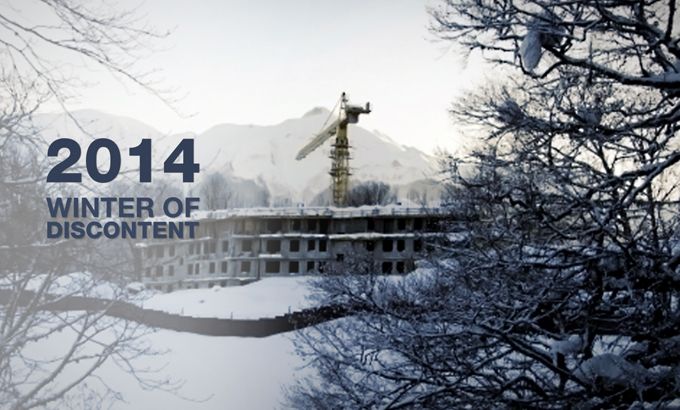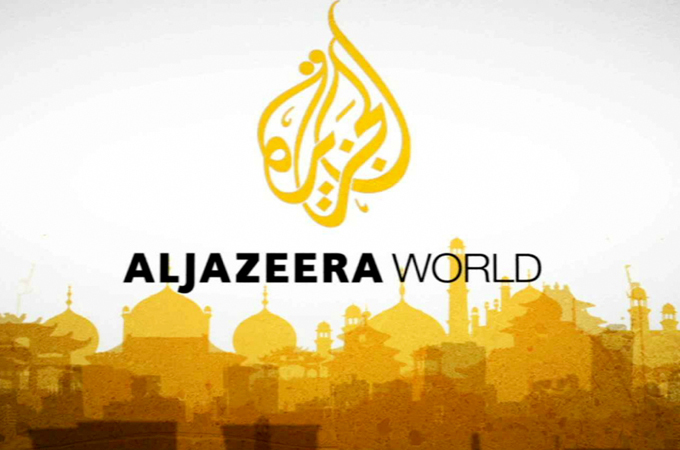
Winter of Discontent
Circassians are protesting the holding of the 2014 Winter Olympic Games 150 years after being expelled from their land.
Filmmaker: Didem Sahin
An excited Russia gears up to host the 2014 Winter Olympics but outside the country, its chosen site is stirring powerful memories and strong emotions.
For most Russians, the town of Sochi represents one of the country’s finest ski resorts in an area of outstanding natural beauty. But for exiled Circassians, the same land harbours a devastating secret.
It was the place their ancestors endured terrible atrocities in the late 1800’s in a series of military campaigns by tsarist forces. Campaigners believe one million Circassians were driven out and 1.5 million killed in what they want the world to recognise as a genocide that lasted 100 years, or by other calculations 200 years.
What is known and documented is that within a generation, only 10 percent of the Circassian population remained on the land.
Sochi was the last territory conquered by the Russian Empire through force of arms. After massacring a population already weakened by starvation and war, the land was occupied.
But Sochi was not the only place. Much of the Black Sea coastline, including Abkhazia and Novorsis endured the same fate. They deported more than 90 percent of the population to Ottoman lands and conquering Sochi meant conquering the entire Caucasus.
Fehim Tastekin, a columnist and chief editor of foreign news at a Turkish newspaper explains the sensitivities at play: “Circassians are saying don’t play games with the memory of our ancestors and since the Games represent peace and dialogue between civilisations, don’t hold this event on the site of a genocide.”
“And they have every right to say that. But also by awarding the Games to Sochi, Circassians have suddenly gained a better awareness of their history. So it’s become an opportunity for them to raise the genocide with the international community – how they were deported and that 90 percent f the Circassian people now live in exile.”
The idea of an anti-mascot contest came from those opposed to Sochi hosting the 22nd Winter Olympics, it sets one man on a journey to rediscover his ancestral identity.
That man is Aydan Celik, an illustrator living in Istanbul. He explains his reasons for participating: “The anti-mascot campaign is important to me for many reasons. First and foremost, it’s about my sense of belonging. I come from a family which survived the genocide in 1864 and was exiled to Ottoman lands.
Sochi is the motherland of the Circassian people and in hosting the games there Russia has made no mention of that or taken them into consideration.
It is now in modern-day Turkey – home of the diaspora, where Russia’s publicity campaign is challenged to expose the history of the host city but the authorities are seen to be using increasingly tough measures to silence their detractors.
While Aydan looks to Sochi for inspiration, the No Sochi protesters stage a major rally in Istanbul’s Taksim Square. And so, as Russian publicity for the Winter Games gathers pace, exiled Circassians mount a rival campaign to expose the story of their ancestors’ tragedy.
That publicity battle wages on as an estimated 70,000 workers race to construct 136 Olympic sites capable of hosting some 75,000 visitors on an unusually small strip of land.
Celik explains his views on the Games: “This is a prestige project for Russia. It’s particularly important for Putin. As a sports fan, he wants to enhance the profile of Russia as a destination in the eyes of the international community.
“The three mascots selected for the Sochi Games are exquisite things that invoke a sense of innocence and make people smile – a bear, a bunny and a leopard. But in reality it is just an image – the reality is a destroyed habitat. And all for facilities which won’t last. So what we call the genocide hasn’t only targeted Circassians, but other living things as well.”
Finally, the mascot competition which has been a key element of the Russian public relations campaign, has been found to be distasteful to the Circassians, and holding the Olympic Games on land where genocide was committed is seen as far from the spirit of the Games which will be held there.
Winter of Discontent examines a protest 150 years in the making as Circassians object to the holding of the 2014 Winter Olympic games in the city of Sochi.
 | This episode of Al Jazeera World can be seen from Tuesday, June 18, at the following times GMT: Tuesday: 2000; Wednesday: 1200; Thursday: 0100; Friday: 0600; Saturday: 2000; Sunday: 1200; Monday: 0100; Tuesday: 0600.
Click here for more Al Jazeera World. |